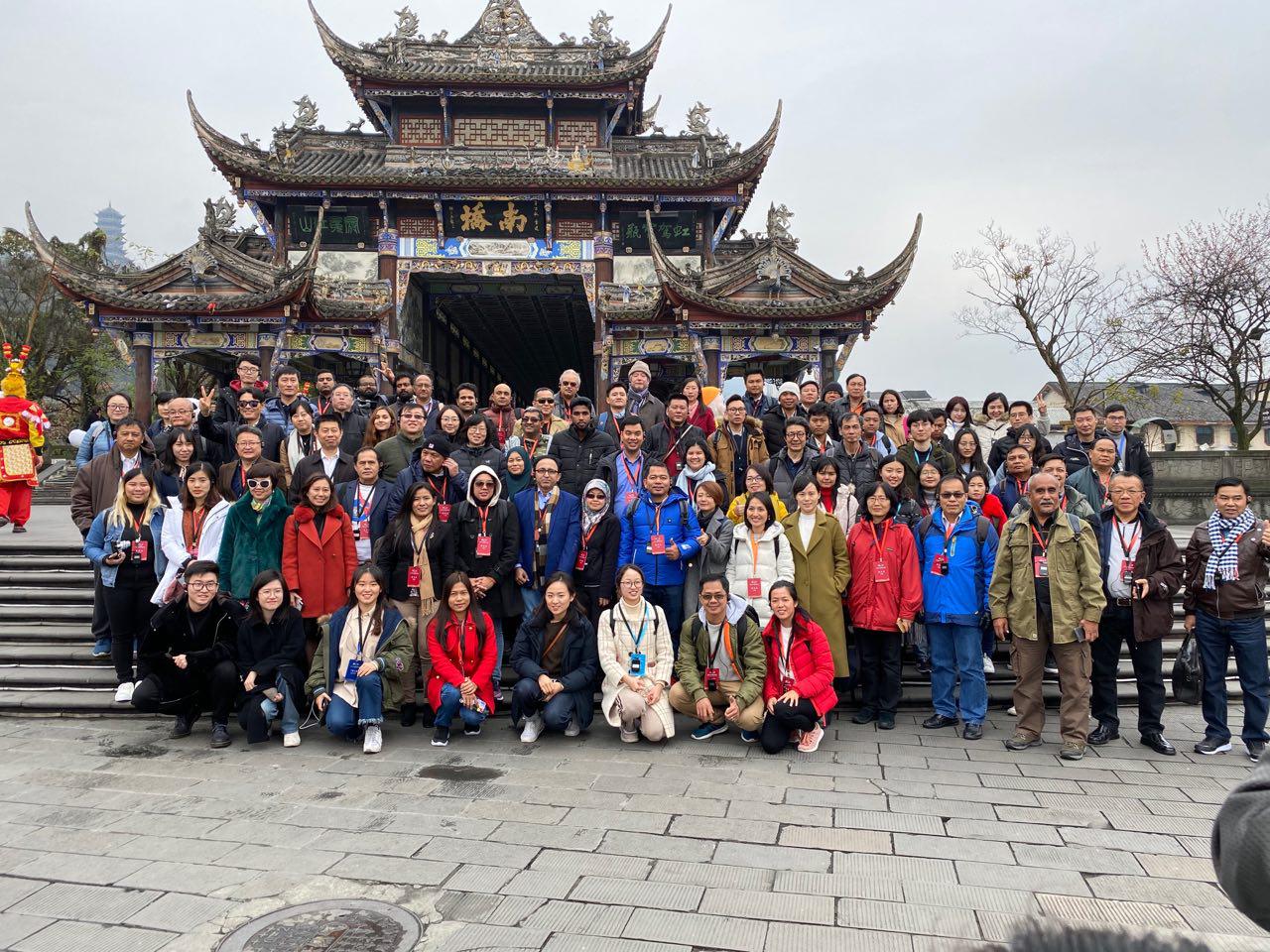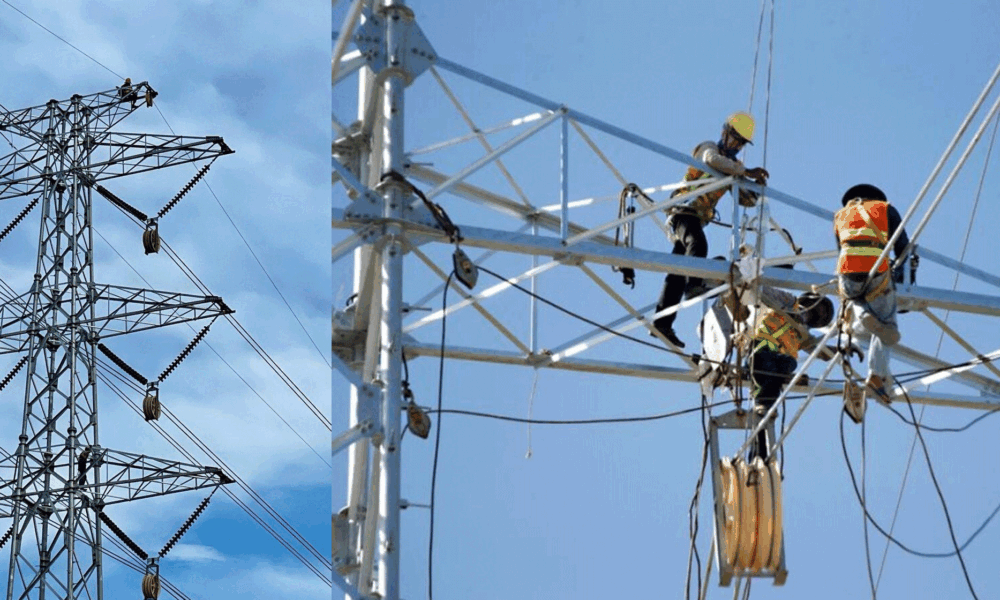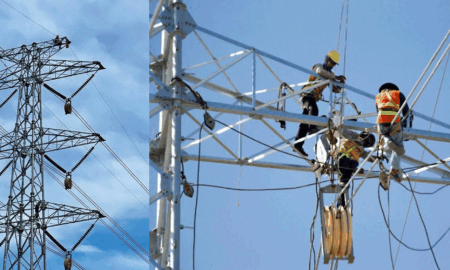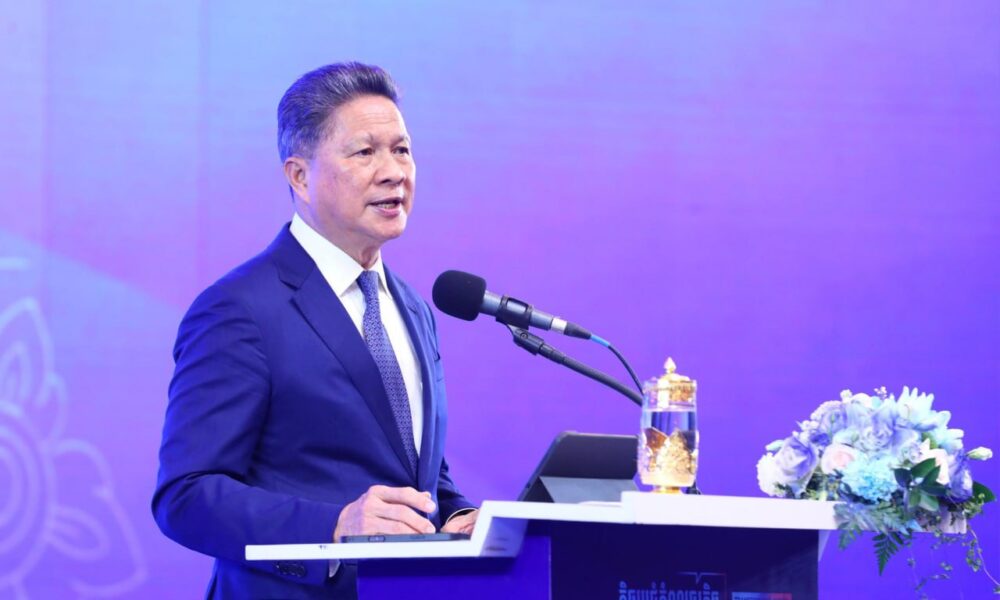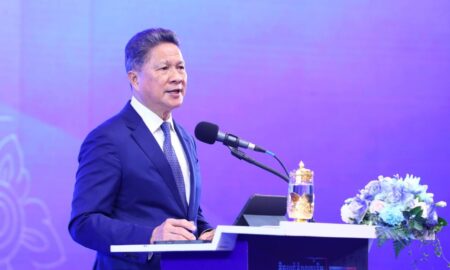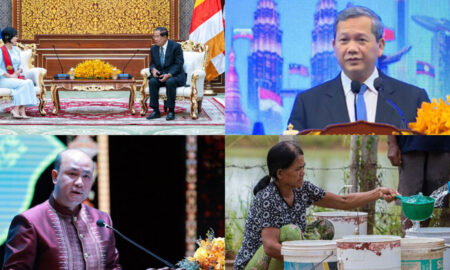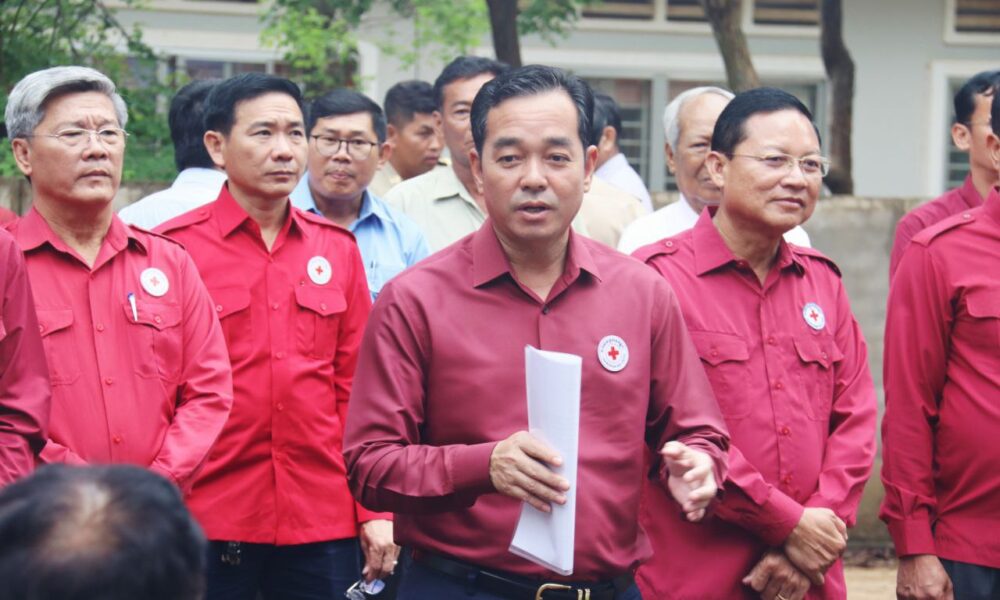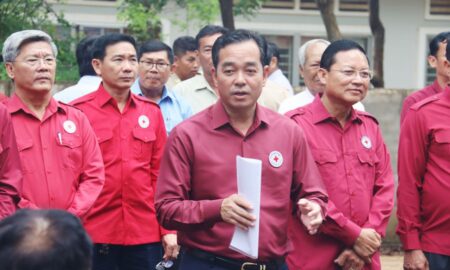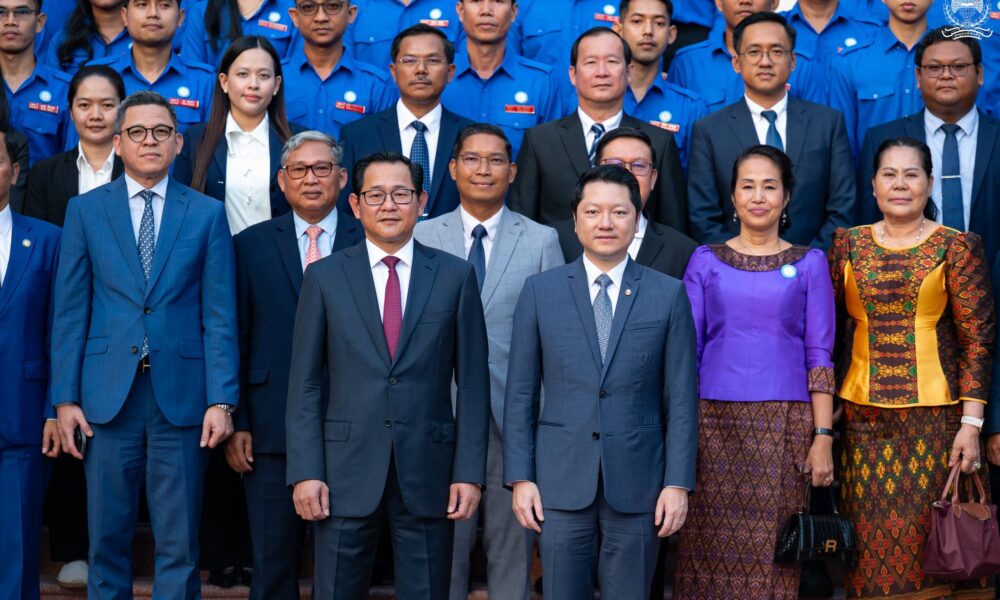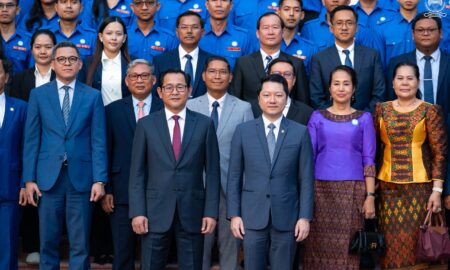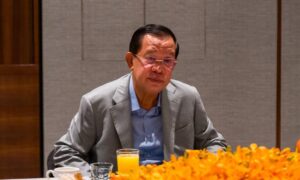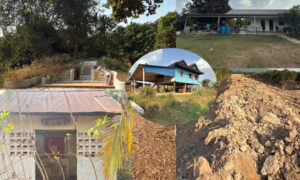by Nguon Sovan, Mao Pengfei
PHNOM PENH, — Cambodia’s economy remains robust this year despite concerns over the possible loss of Everything but Arms (EBA) trade scheme with the European Union, officials and analysts said.
The EU started in February the 18-month process that could lead to the temporary suspension of Cambodia’s duty-free trading access to the EU market under the EBA scheme due to concerns over human rights and labor rights.
If suspended, it is predicted the kingdom’s growth could slow down in a short term.
The Southeast Asian country’s economy is traditionally driven by garment and footwear exports mainly to the EU market, tourism, construction, and agriculture.
ROBUST GROWTH EXPECTED THIS YEAR
Economy and Finance Minister Aun Pornmoniroth said Cambodia would be able to achieve the growth of 7.1 percent in 2019, making the GDP (Gross Domestic Product) value increase to 26.8 billion U.S. dollars.
“Industrial sector (mainly garment and construction) is expected to grow by 10.7 percent this year, as service sector (tourism, transport and telecom, trade and real estate) and agriculture are projected to increase by 6.7 percent and 1.6 percent, respectively,” he told the parliament during a 2020 budget law debate in late November.
Inflation is predicted to rise slightly to 2.8 percent this year from 2.5 percent last year, he said.
Pornmoniroth, who is also the deputy prime minister, said the GDP per capita is estimated to hit 1,679 dollars this year, up 8.4 percent from 1,548 dollars last year.
Mey Kalyan, a senior advisor to the Supreme National Economic Council, said the economic situation has been quite stable and rather robust this year although there were many negative elements such as the overall downward trend of global trade, uncertainties of EBA, and the threat of the return of self-exiled former opposition leader Sam Rainsy on the Independence Day (Nov. 9) to create instabilities.
In Channy, chairman of the Association of Banks in Cambodia, agreed that the economy this year is quite good based on the healthy growth in the banking sector.
“The economy and the banking industry complement each other. This year, the banking industry has grown well. So has the economy,” he said.
Channy, who is also president of the ACLEDA bank, said foreign investors’ confidence, particularly the Chinese ones, in Cambodia’s political stability and macroeconomic stability remained strong.
POSSIBLE LOSS OF EBA COULD DAMPEN GROWTH PROSPECT
The EU is expected to decide on whether to withdraw the trade privilege from Cambodia or not in February next year.
Kalyan said if the EBA is stripped, it will have negative impacts on the economy, in particular in the poor segment of the society.
“It is our hope that this would not happen, but this is beyond our control, although I was informed that our government and EU have been working hard to resolve issues,” he said. “What we can do here is prepare policy measures to mitigate negative impacts, should the worse situation arises.”
As a Least Developed Country, Cambodia has, for decades, enjoyed exports of all products, except arms and ammunition to the EU markets with duty-free.
The country’s export to EU was valued at 5.86 billion dollars in 2018, about 95 percent of which entered the EU duty-free taking advantage of EBA preferences, according to an EU data, adding that garment and footwear products accounted for around three quarters of EU imports from the kingdom.
The garment and footwear industry is Cambodia’s biggest export sector, employing about 750,000 people in some 1,100 factories.
The World Bank said in a report released late last month that a possible withdrawal of the EBA could substantially dampen Cambodia’s growth prospect.
If stripped, tariffs on garment, footwear, and bicycle products to the EU market will increase 12 percent, 16 percent and 10 percent, respectively, the report said.
The government in March announced a number of measures, including lowering logistics and production costs, cutting red tape, and supporting businesses with a six-day reduction in the number of public holidays, to support local manufacturers and exporters in case the EU withdrew the EBA from the kingdom.
Cambodian Prime Minister Samdech Techo Hun Sen has said the measures had helped reduce operating costs for producers and exporters by about 400 million dollars per year.
He said losing the EBA was just a matter of time because as Cambodia’s economic strength grows, probably in 2025 or 2026, it will no longer be eligible under the EU’s requirements.
“Now, they (EU) have threatened us by asking us to do this and do that, but we have responded that we cannot exchange our sovereignty for their aid or trade preferences,” he said last month.
Channy said the possible loss of EBA would have a short-term impact on the country’s growth prospect, but he said the government had well prepared to cope with it.
“We cannot rely on only one market. I’ve observed that the government has been working actively to open markets in other regions besides the EU and the United States,” he said.
“It’s vital to stand on our own feet, rather than depending on the trade preferences. If we rely on them, they (EU) will threaten us all the time,” he said.
Chheang Vannarith, president of the Asian Vision Institute, said Cambodia’s economy is quite resilient as it is embracing robust institutional reforms and diversification strategy.
“The EU will not likely target textile industry, given it will affect poverty reduction in Cambodia and the progress towards the realization of the Sustainable Development Goals 2030,” he said.
GROWTH PREDICTED FOR 2020 STILL STRONG
The growth is projected at 6.5 percent next year, making the GDP value rise to 29.4 billion dollars, said Pornmoniroth, adding that the GDP per capital is forecast to reach 1,816 dollars.
He said industrial sector is expected to grow by 8.9 percent, service sector by 6.4 percent, and agriculture by 1.7 percent.
Kalyan, who is also the chairman of the Cambodia Development Resource Institute, said it is forecast that the economy will remain robust in the short-to-medium term.
“Cambodia needs to continue investing further in human resources, technology, infrastructure, improving our climate for investment, modernizing our agriculture, and preserving our environment,” he said.
Vannarith said to ensure a long-term robust growth, Cambodia needs to keep reforming, reducing production cost, enhancing productivity and production capacity, and expanding export markets.
“Reaching FTA (Free Trade Agreement) with China and other key Asian economies will help Cambodia to expand its export markets as well as attract foreign direct investment,” he said.


